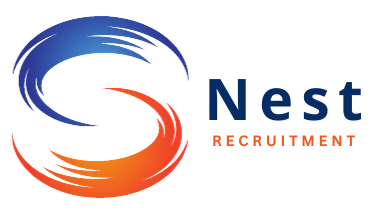Upskilling AINs and PCWs: Building a stronger frontline in aged care and hospitals
The quality of care in aged care facilities and hospitals relies heavily on the skills, confidence, and professionalism of frontline staff. Assistants in Nursing (AINs) and Personal Care Workers (PCWs) form the backbone of patient care, providing essential support with daily living activities, mobility, and emotional well-being. Yet, many healthcare organisations face the challenge of keeping these critical staff up-to-date with evolving care standards and sector requirements.
Upskilling AINs and PCWs is not just a compliance measure — it is a strategic investment in workforce quality, staff retention, and overall patient outcomes. At Nest Recruitment, we recognise that developing frontline staff strengthens healthcare delivery and helps facilities maintain high standards of care.
Why upskilling matters
Healthcare is a dynamic field. From new care protocols to emerging technologies and specialised patient needs, AINs and PCWs must continually adapt. Upskilling ensures that these staff:
- Deliver safe and effective care
- Stay confident in managing complex situations
- Understand current legislation and compliance requirements
- Provide compassionate, patient-centred support
Investing in staff development also improves morale and reduces turnover. When employees feel competent and valued, they are more likely to remain in their roles, providing continuity of care that is essential for both patients and healthcare providers.
Key areas for AIN and PCW upskilling
Several training programs and skill development initiatives can strengthen frontline staff in aged care and hospital settings:
- Dementia care: With an ageing population, the prevalence of dementia is rising. Training in communication, behaviour management, and personalised care ensures that staff can provide empathetic, effective support for residents with cognitive impairments.
- Mobility and manual handling: Proper techniques reduce the risk of injury for both staff and patients. Training in safe lifting, transfers, and use of equipment improves efficiency and safety.
- Palliative care: Assisting patients with terminal conditions requires a combination of technical skills, emotional intelligence, and communication. Palliative care training equips AINs and PCWs to support patients and families with dignity.
- Infection control and hygiene: Compliance with infection prevention protocols is essential in both hospitals and aged care facilities. Regular updates on hygiene standards and procedures protect staff and patients alike.
- Soft skills and communication: Effective interpersonal skills are vital for building trust, reducing anxiety, and delivering person-centred care.
How upskilling benefits healthcare providers
Healthcare organisations gain multiple advantages by investing in the development of their frontline staff:
- Enhanced patient care: Skilled AINs and PCWs provide safer, higher-quality care that meets the needs of patients and residents.
- Improved staff retention: Employees who receive training and professional development feel valued and motivated to stay.
- Regulatory compliance: Ongoing upskilling ensures that staff meet all current standards and requirements in aged care and hospital settings.
- Operational efficiency: Confident and competent staff are more efficient, reducing errors and improving workflow.
Nest Recruitment’s role in workforce development
At Nest Recruitment, we go beyond supplying staff. We actively support the growth and development of AINs and PCWs through tailored training programs, resources, and guidance. By connecting healthcare facilities with qualified and continually upskilled staff, we ensure that patient care standards are consistently met and exceeded.
Our approach includes:
- Assessing skills gaps and training needs
- Coordinating access to sector-specific training programs
- Providing guidance on career progression for AINs and PCWs
- Partnering with facilities to ensure staff are supported in their ongoing development
By focusing on workforce development, Nest Recruitment helps healthcare providers build a resilient, skilled, and confident team capable of delivering exceptional care.
Conclusion
Upskilling AINs and PCWs is essential for sustaining high-quality care in aged care facilities and hospitals. Beyond compliance, ongoing training builds confidence, enhances job satisfaction, and ensures that patients and residents receive the support they deserve.
Nest Recruitment is committed to empowering frontline staff through targeted development initiatives. By investing in the growth of AINs and PCWs, healthcare organisations not only strengthen their teams but also create a safer, more compassionate, and efficient care environment for all.











